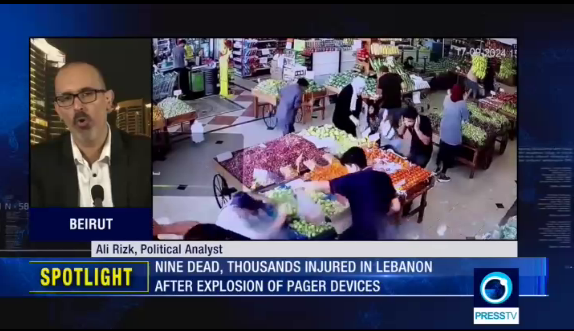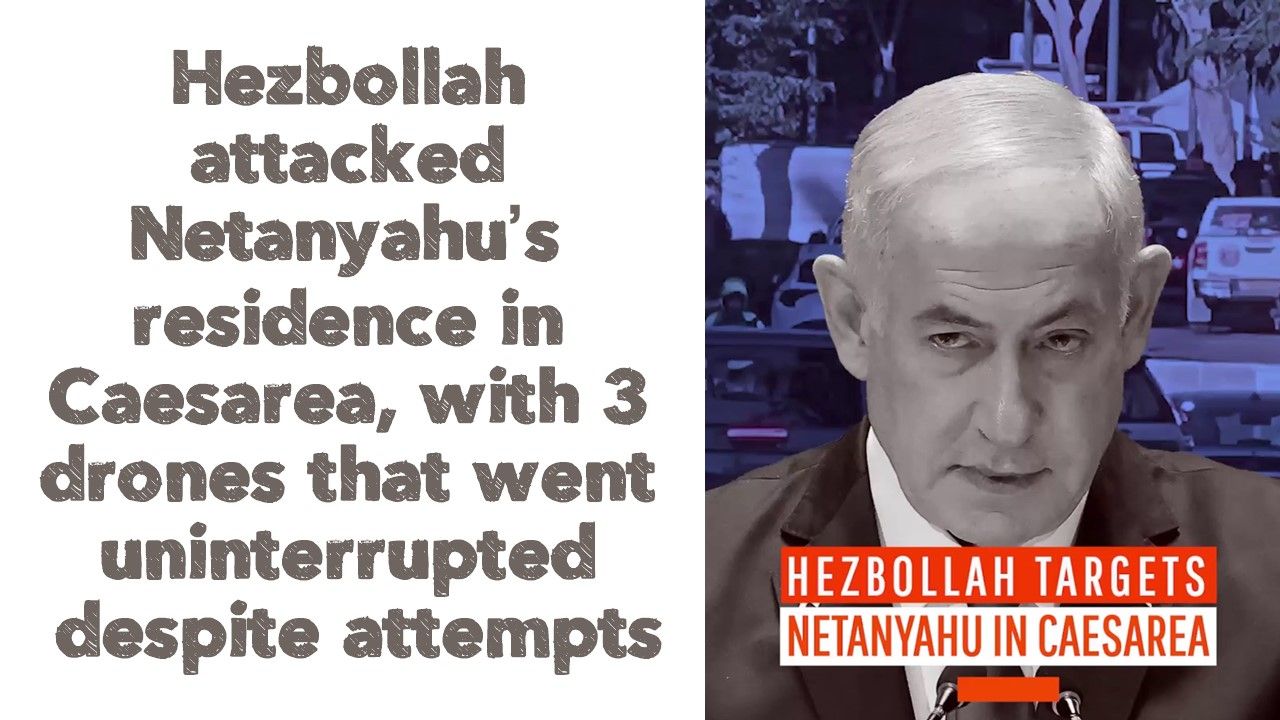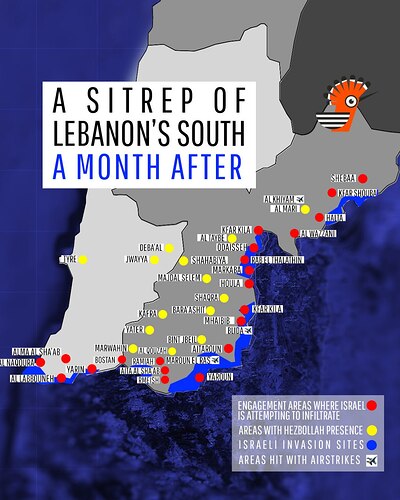Lebanon sees deadliest day of conflict since 2006 as over 270 die in strikes

Smoke rises from Israeli shelling on villages in the Nabatiyeh district, seen from the southern town of Marjayoun, Lebanon (Hussein Malla/AP)
Mon, 23 Sep, 2024 - 16:12
Bassam Hatoum, Melanie Lidman and Bassem Mroue, Associated Press
Israeli strikes killed more than 270 Lebanese in the deadliest barrage since the 2006 Israel-Hezbollah war on Monday.
It comes as the Israeli military warned residents in southern and eastern Lebanon to evacuate their homes ahead of a widening air campaign against Hezbollah.
Thousands of Lebanese fled the south, and the main highway out of the southern port city of Sidon was jammed with cars heading toward Beirut in the biggest exodus since the 2006 fighting.
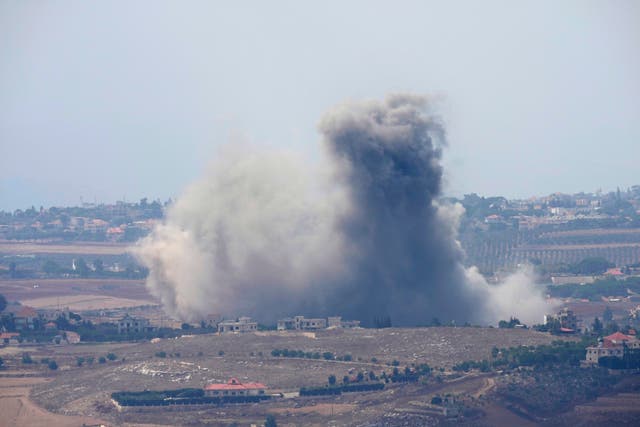
Smoke rises from Israeli airstrikes on villages in the Nabatiyeh district, seen from the southern town of Marjayoun, Lebanon (Hussein Malla/AP)
More than 1,000 other people were wounded in the strikes — a staggering one-day toll for a country still reeling from a deadly attack on communication devices last week.
The government ordered schools and universities to close on Tuesday across most of the country and began preparing shelters for people displaced from the south.
The Israeli military announced that it hit some 800 targets on Monday, saying it was going after Hezbollah weapons sites.
Some strikes hit in residential areas of towns in the south and the eastern Bekaa Valley.
One strike hit a wooded area as far away as Byblos in central Lebanon, more than 80 miles from the border north of Beirut.
The military said it was expanding the airstrikes to include areas of the valley along Lebanon’s eastern border with Syria.
Hezbollah has long had an established presence in the valley, and it is where the group was founded in 1982 with the help of Iran’s Revolutionary Guards.
Israeli military spokesman Rear Admiral Daniel Hagari repeated warnings urging residents to immediately evacuate areas where Hezbollah is storing weapons, including in the valley.
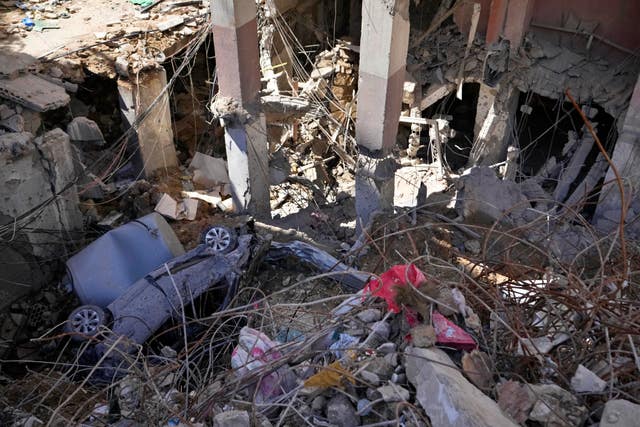
The rubble of a building at the site of Friday’s Israeli strike in Beirut’s southern suburbs, Lebanon (Hassan Ammar/AP)
The warnings left open the possibility that some residents could live in or near targeted structures without knowing that they are at risk.
Meanwhile, Hezbollah said in a statement that it fired dozens of rockets toward Israel, including at an military post in Galilee.
It also targeted for a second day the facilities of the Rafael defence firm, headquartered in Haifa.
As Israel carried out the attacks, Israeli authorities reported a series of air-raid sirens in northern Israel warning of incoming rocket fire from Lebanon.
The evacuation warnings were the first of their kind in nearly a year of steadily escalating conflict and came after a particularly heavy exchange of fire on Sunday.
Hezbollah launched around 150 rockets, missiles and drones into northern Israel in retaliation for strikes that killed a top commander and dozens of fighters.
The increasing strikes and counter-strikes have raised fears of an all-out war, even as Israel is still battling Hamas in Gaza and trying to return scores of hostages taken in Hamas’ October 7 attack.
Hezbollah has vowed to continue its strikes in solidarity with the Palestinians and Hamas, a fellow Iran-backed militant group.
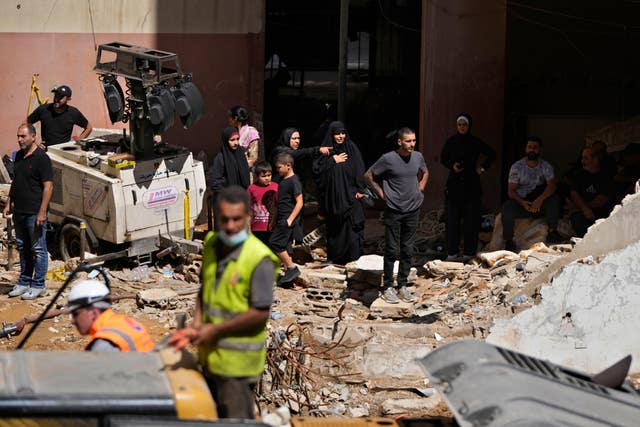
Residents react as rescuers sift through the rubble, searching for people still missing at the site of Friday’s Israeli strike in Beirut’s southern suburbs (Hassan Ammar/AP)
Israel says it is committed to returning calm to its northern border.
Associated Press journalists in southern Lebanon reported heavy airstrikes targeting many areas Monday morning, including some far from the border.
Lebanon’s state-run National News Agency said the strikes hit a forested area in the central province of Byblos, about 130 kilometres (81 miles) north of the Israeli-Lebanese border, for the first time since the exchanges began in October.
Israel also bombed targets in the north-eastern Baalbek and Hermel regions, where a shepherd was killed and two family members were wounded, according to the news agency.
It said a total of 30 people were wounded in strikes.
The Lebanese Health Ministry put the death toll at 274.
It asked hospitals in southern Lebanon and the eastern Bekaa Valley to postpone surgeries that could be done later.
The ministry said in a statement that its request aimed to keep hospitals ready to deal with people wounded by “Israel’s expanding aggression on Lebanon”.
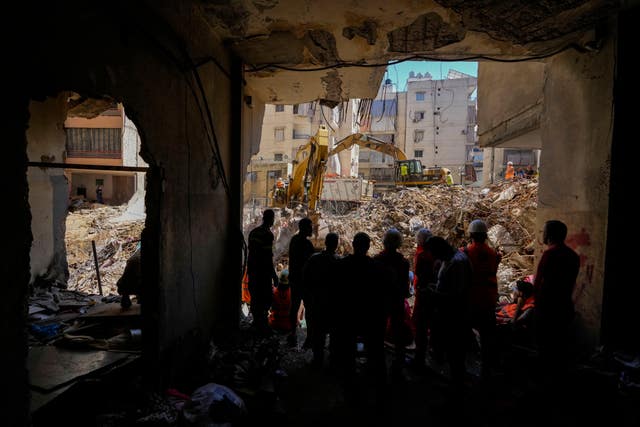
Emergency workers use excavators to clear the rubble at the site of Friday’s Israeli strike in Beirut’s southern suburbs, Lebanon (Hassan Ammar/AP)
An Israeli military official said Israel is focused on aerial operations and has no immediate plans for a ground operation.
The official, speaking on condition of anonymity in keeping with regulations, said the strikes are aimed at curbing Hezbollah’s ability to launch more strikes into Israel.
Lebanese media reported that residents received text messages urging them to move away from any building where Hezbollah stores arms until further notice.
“If you are in a building housing weapons for Hezbollah, move away from the village until further notice,” the Arabic message reads, according to Lebanese media.
Lebanon’s information minister, Ziad Makary, said in a statement that his office in Beirut had received a recorded message telling people to leave the building.
“This comes in the framework of the psychological war implemented by the enemy,” Mr Makary said, and urged people “not to give the matter more attention than it deserves”.
It was not immediately clear how many people would be affected by the Israeli orders.
Communities on both sides of the border have largely emptied out because of the near-daily exchanges of fire.
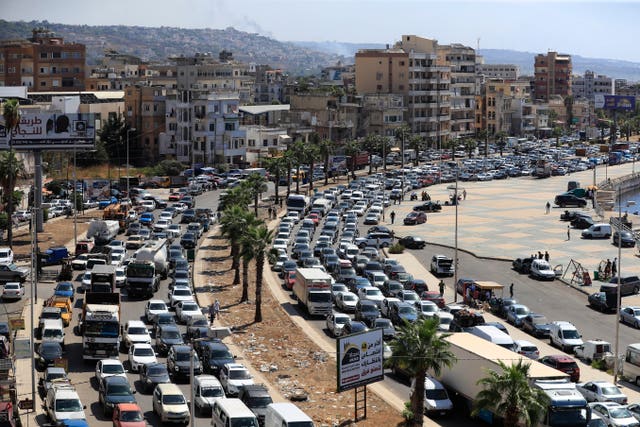
Cars sit in traffic as they flee the southern villages amid ongoing Israeli airstrikes, in Sidon, Lebanon (Mohammed Zaatari/AP)
Israel has accused Hezbollah of transforming entire communities in the south into militant bases, with hidden rocket launchers and other infrastructure.
That could lead the Israeli military to wage an especially heavy bombing campaign, even if no ground forces move in.
The military said it had targeted more than 150 militant sites early on Monday.
Residents of different villages in southern Lebanon posted photos on social media of airstrikes and large plumes of smoke.
The state-run National News Agency also reported airstrikes on different areas.
An Israeli airstrike on a Beirut suburb on Friday killed a top Hezbollah military commander and more than a dozen fighters, as well as dozens of civilians, including women and children.
Last week, thousands of communications devices, used mainly by Hezbollah members, exploded in different parts of Lebanon, killing 39 people and wounding nearly 3,000.
Lebanon blamed Israel for the attacks, but Israel did not confirm or deny any responsibility.



